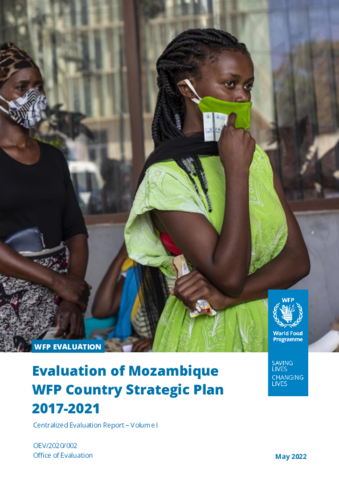
It was conducted between January and December 2021 to assess WFP’s strategic positioning and role and the extent to which WFP has made the strategic shift expected by the CSP; WFP’s contributions to strategic outcomes; efficiency and factors that explain WFP performance.
The evaluation concluded that:
-
The CSP was relevant to country priorities and people’s needs and offered a relatively flexible programmatic framework within which WFP responded promptly and effectively to the various to the various crises that affected Mozambique during the programme cycle, including cyclones and other climate-related shocks, the COVID-19 pandemic and the internal displacement caused by the insurgence of non-state armed groups in the north of the country.
-
In doing so, WFP confirmed its comparative advantage and is clearly positioned as the lead player in humanitarian action in Mozambique. On the other hand, emergency response required reprioritization of activities and overshadowed the CSP original upstream focus. Contributions to national and local capacities to address root causes are still emerging. In this connection, a relatively siloed approach to implementation hindered internal coherence, economies of scale, and effectiveness across the triple nexus. External coherence also needs to be strengthened, particularly with other United Nations organizations and in partnering more strategically with Government and civil society. Insufficient, highly earmarked and short-term funding were also critical hindering factors, as well as WFP HR capacity to play an enabling role, and staff turnover on WFP and Government side.

